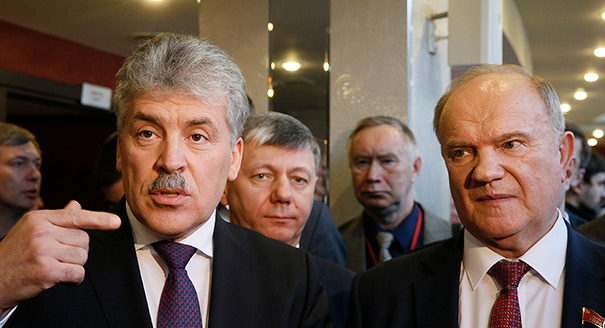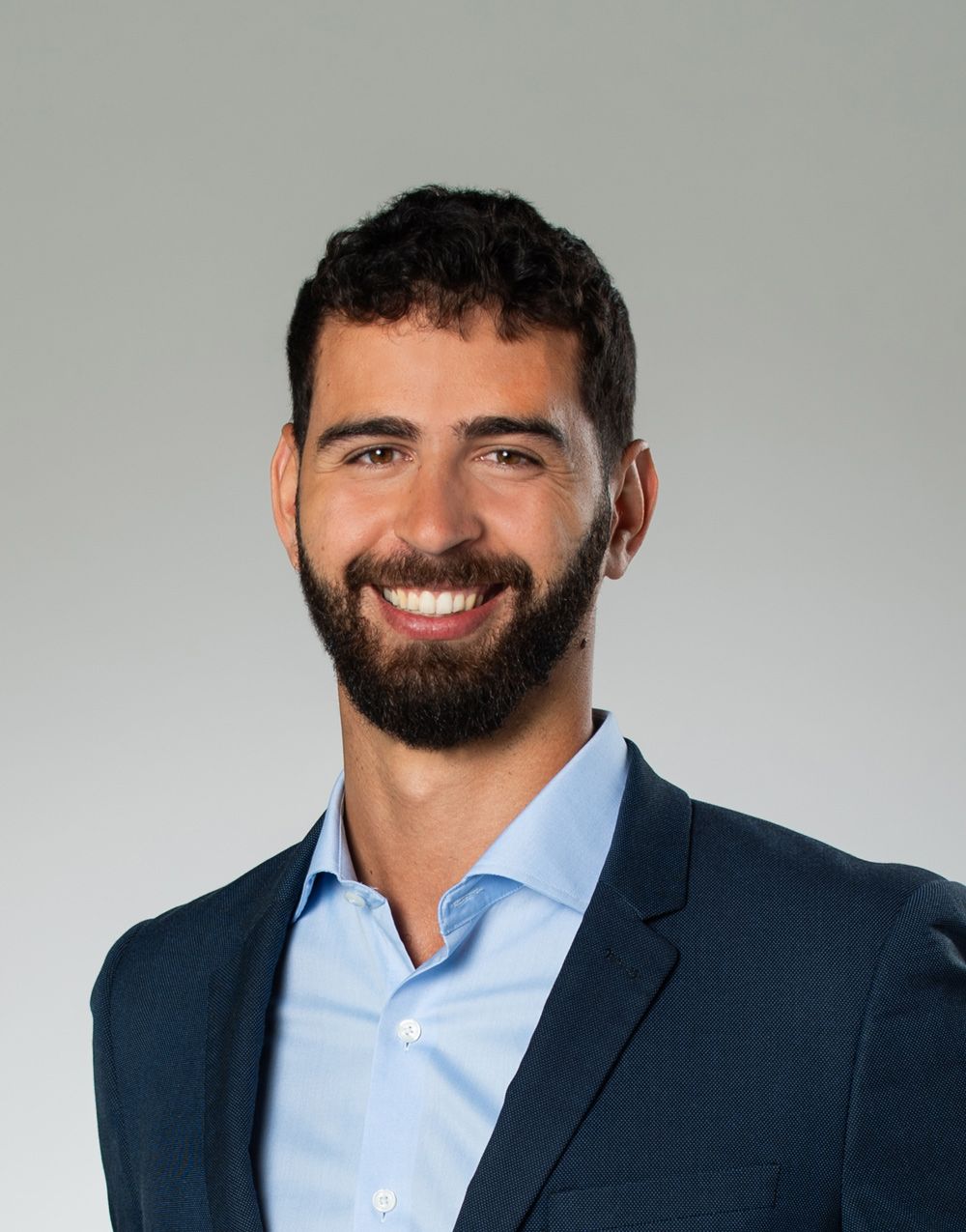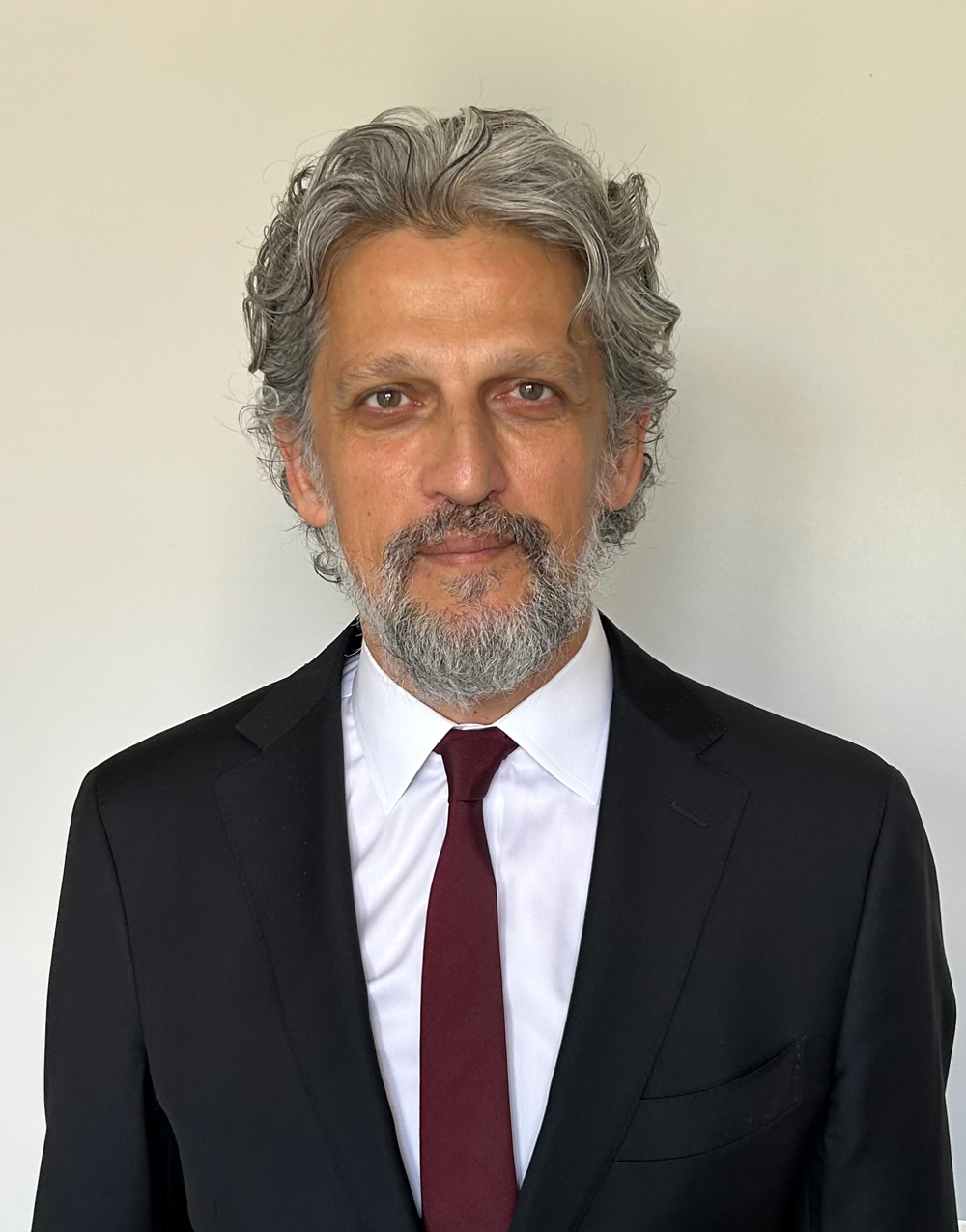Washington and New Delhi should be proud of their putative deal. But international politics isn’t the domain of unicorns and leprechauns, and collateral damage can’t simply be wished away.
Evan A. Feigenbaum
{
"authors": [
"Andrey Pertsev"
],
"type": "commentary",
"centerAffiliationAll": "",
"centers": [
"Carnegie Endowment for International Peace",
"Carnegie Russia Eurasia Center"
],
"collections": [
"Inside Russia"
],
"englishNewsletterAll": "",
"nonEnglishNewsletterAll": "",
"primaryCenter": "Carnegie Russia Eurasia Center",
"programAffiliation": "",
"programs": [],
"projects": [],
"regions": [],
"topics": [
"Economy"
]
}
Source: Getty
The Communist Party’s new presidential candidate is far from a dull apparatchik. He’s a populist whose criticism of the authorities can appeal to different electoral groups. There has always been a demand for populism in Russia. If Pavel Grudinin can run an effective campaign—and his previous political experience suggests he can—it could lead to serious changes in the Russian political landscape.
Just when everyone expected political stalwart Gennady Zyuganov to once again represent the Communist Party of the Russian Federation (CPRF) in the March 2018 presidential election, the party threw a curveball. They unexpectedly revived the otherwise dull campaign by nominating Pavel Grudinin, the CEO of the Lenin Sovkhoz farm outside Moscow. By all appearances, the presidential administration decided to recruit a new face to attract attention to the election and, thus, increase turnout.
But finding a new candidate was no simple task: most communist politicians have little national visibility. On the surface, Grudinin hardly appears better. As head of the Lenin farm and speaker of the city council in Vidnoye (population: 70,000), he looks like standard fare: an easy opponent for Vladimir Putin.
However, in reality, Grudinin is a completely different style of politician: a populist whose sharp criticisms of the government are readily disseminated online even by supporters of the authorities. The agricultural entrepreneur is a sympathetic figure to virtually everyone—liberals and conservatives, right-wingers and leftists.
Grudinin’s nomination is an interesting experiment in returning true populism to Russian politics at a time when it is also on the rise in the West. If he runs an effective campaign—and his previous political experience suggests he can—it could lead to serious changes in the Russian political landscape.
It is difficult to say how consciously the Kremlin took this risky step. Most likely, several factors are at play. Party leader Zyuganov does not want to retire and cede second place in the election—a position of status—to Vladimir Zhirinovsky, the leader of the Liberal Democratic Party of Russia (LDPR). But, at seventy-three, Zyuganov doesn’t have much time left, and the Communist Party’s popularity is falling. It’s easier for Zyuganov not to run than risk his runner-up status. But Zyuganov also doesn’t want to risk his favored protégés, whose careers could be destroyed by a bad election result. Grudinin—friendly to the party, but also not a member—is a good substitute.
Recognizability rankings alone make it clear why Grudinin is a suitable candidate for the Kremlin: he isn’t listed in the polls. He will get the communist electorate’s vote—roughly 15 percent—plus or minus a few percentage points. This is a standard scenario for the Russian political system that poses no risk of destabilization.
But that scenario only works if Grudinin plays by the system’s standard, artificial rules. And he could very well depart from them.
That’s because Grudinin is a popular internet personality—and this is only one of his guises. Videos of his speeches gather more than 800,000 views on YouTube. They actively spread on social media. Even supporters of Putin and anti-corruption activist Alexei Navalny post them. The videos bear titles like: “A man truly without fear” and “Grudinin spills the truth!!! Dead silence in the State Duma!!!”
Of course, Navalny is also popular on YouTube. But Grudinin plays a different role. He more resembles a man of the people, an ordinary person who is fed up and has started speaking the truth. And Grudinin also has another image. People well-versed in politics knew him long before social media. He is the director of a successful enterprise, and has exerted significant effort to promote this image. The media periodically publish reports from Grudinin’s farm, where he talks about the employees’ high salaries and the social services available to them.
As a result, everyone sees what they want in Grudinin. To those nostalgic for the Soviet era, he has preserved the ideal collective farm in the twenty-first century. To more modern people, he has set up a successful business, resisting political pressure and growing strawberries and vegetables on the edge of Moscow. Even the nationalistic electorate likes Grudinin: he has criticized migration from Central Asia. And as required, the new communist candidate speaks cautiously of Stalin and the Soviet past.
The images of YouTube truth-teller and successful businessman are a strong combination for a populist. And Grudinin has a team of PR specialists who helped build the myth of the “man without fear.” Of course, one can argue about how much this image matches reality. Grudinin took over an already exemplary state farm in the mid-1990s. And the foundation of his business has long been construction and trade, not agriculture.
He was also previously a member of the ruling United Russia party and on good terms with the former leadership of the Moscow region. He was elected to the Moscow regional Duma three times from the ruling party. In fact, Grudinin broke with the party only after it failed to back him in the election to chair the Leninsky district. After that, he tried to ally himself with LDPR’s Zhirinovsky.
But all that is reality, and we are talking about a candidate’s skillfully built populist image. If Grudinin can maintain and develop this image further, then Russia’s political system will face a very complex stress test.
Shortly after Putin was elected president, the Kremlin began to fight populism and its purveyors. There was to be only one populist in the Russian political arena: Putin himself. The authorities complicated the process for registering parties and only allowed candidates to run for the State Duma on party lists. All the parties came under Kremlin control. Those populists who resisted were ousted. Now, Grudinin’s nomination from a mainstream party is breaking through that blockade.
Frankly, the authorities do not know how to deal with such a candidate. During the prosperous 2000s, they would have countered him with their concrete accomplishments. Now, that is difficult: people are starting to live worse, and social discontent is growing.
Russians would like to hear some promises, but Putin is living in an imaginary country with a successful population, new hospitals and schools (in reality, they are closing even in Moscow), and cities with strong industry. It is risky for the president to make new promises. What has he been up to for eighteen years if there is still so much to be done to improve life in Russia? The so-called “post-Crimea consensus” has all but driven criticism of the government from mainstream politics. Grudinin provides the two things people are demanding: promises of a better life and criticism of the authorities.
The presidential administration has given the regions a clear task: 70 percent turnout and 70 percent of the vote for Putin. New faces drive turnout, but what will happen to Putin’s results? Awakened by populist oratory, people dissatisfied with the authorities will come to the polls. For the Kremlin, the results could come as a surprise.
Consider nominal opposition candidate Mikhail Prokhorov in the 2012 presidential election. He received 8 percent of the vote—and he wasn’t a populist who appeals to all the electoral niches. Prokhorov aimed for the liberal electorate. Grudinin is aiming for the middle majority, which was previously pro-Putin.
And Grudinin is capable of stealing supporters from Putin, Zyuganov, Zhirinovsky, and even Navalny. If he can successfully lead a presidential campaign, build a coalition, and appeal to different electoral groups—and, most importantly, if the Kremlin gives him access to federal television—then the Russian political system may change significantly. There has always been a demand for populism in Russia. Its appearance will give hope to many.
The Kremlin wants a system for increasing turnout. But the opposition candidates—Grudinin, liberal journalist Ksenia Sobchak, and LDPR’s Zhirinovsky—are all campaigning for the old pro-Putin majority: diverse groups with different demands that previously supported Putin. Now, they’re either just tolerating him or openly opposing him.
Of course, these candidates would all tone down their activities at the Kremlin’s first request. But, unless that happens, their actions are leading to the further fragmentation of the Putin majority. It’s difficult to envy the presidential administration’s internal affairs team. Their client lives in a world of his own where he is unshakably popular. Meanwhile, his team must function in the real world—the world of populists and their voters.
Carnegie does not take institutional positions on public policy issues; the views represented herein are those of the author(s) and do not necessarily reflect the views of Carnegie, its staff, or its trustees.
Washington and New Delhi should be proud of their putative deal. But international politics isn’t the domain of unicorns and leprechauns, and collateral damage can’t simply be wished away.

Evan A. Feigenbaum
Senior climate, finance, and mobility experts discuss how the Fund for Responding to Loss and Damage could unlock financing for climate mobility.

Alejandro Martin Rodriguez
The EU lacks leadership and strategic planning in the South Caucasus, while the United States is leading the charge. To secure its geopolitical interests, Brussels must invest in new connectivity for the region.

Zaur Shiriyev
An Armenia-Azerbaijan settlement may be the only realistic test case for making glossy promises a reality.

Garo Paylan
Venezuelans deserve to participate in collective decisionmaking and determine their own futures.

Jennifer McCoy